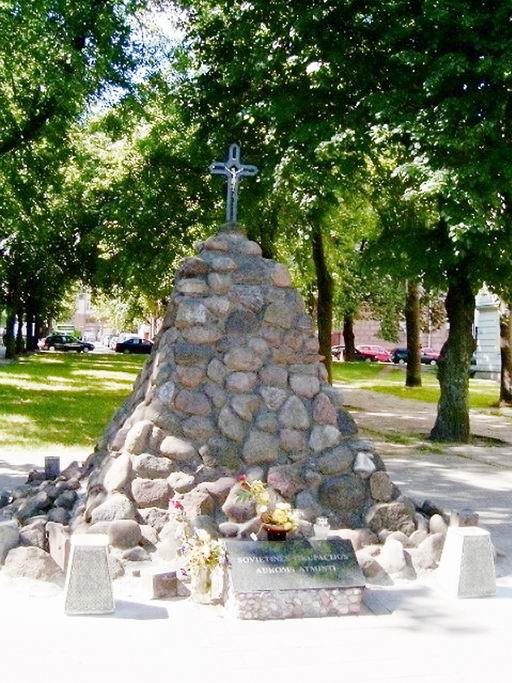Sorry things have been a bit quiet here, I’ve been busy! But in a week’s time I will be concluding my day job so that I can be on my way to Latvia for the summer, and then when I return home to Canada I will be returning to school.
But back to the topic of the post – today is June 14, which is one of the numerous days of remembrance in the Latvian calendar. This day of remembrance is for the victims of Communist terror. It is on this day because it was on June 14, 1941 that the Soviets began mass deportations of tens of thousands of Latvians, Estonians and Lithuanians to Siberia and the gulags. Another larger wave of deportations also took place in 1949.
None of my ancestors were deported to Siberia, but I have found numerous extended relatives in the 1949 deportation lists, particularly from the northern parishes of Vijciems and Lugaži. I also know that most of my maternal grandfather’s parents’ siblings disappeared during this time, but they are not mentioned in These Names Accuse (a book comprised of lists of many of those deported during this time).
I do, however, have an ancestor who was a victim of Communist terror. He was not deported, but rather arrested in 1940 not long after the first Soviet occupation began. This was my great-grandfather Arvīds Francis. He was arrested because he had been a counter-intelligence agent with the Latvian political police force. I am told that most of his time was spent dealing with threats from fascist groups such as Pērkonkrusts, but he was involved in observation of Communist groups as well. He spent the late 1920s and early 1930s as the regional leader in Kuldīga, and his work was, at times, dangerous.
He was arrested on August 3, 1940 and imprisoned in Daugavpils. He was repeatedly interrogated and on June 16, 1941 was sentenced to execution. The sentence was carried out on June 22, 1941. He, along with three other police force members who had worked in the LiepÄja area, were buried outside the prison.
An interrogation file was kept, and is currently stored in the Latvian State Archives (not the Latvian State Historical Archives, where I do most of my other research). I attempted to access it when I was in Latvia in December, but was told that I would need to bring proof that I was related to him, which I did not have with me at the time. My uncle was able to access it briefly (his mother is Arvids’ daughter, hence the paper trail of documentation was shorter than it would be for me), but didn’t have a lot of time. He was able to tell me though that it was quite a large file, and mostly in Russian. Now I do have all of my paperwork in order, so I hope to be able to access it this time around.
Five years ago, I was actually in the Baltics on June 14. I was in central Vilnius (Lithuania), where I visited the Soviet Occupation Museum, and outside the walls were covered with commemorative drawings by local children and guarded by members of the Lithuanian army. Nearby was the monument to commemorate Soviet victims of terror.

Monument to Soviet victims of terror, Vilnius, Lithuania. Picture taken by the author, June 14, 2005.
Other remembrance days in Latvia associated with the Second World War: March 25 (the day the 1949 deportations began), May 8 (the end of the Nazi regime in Europe and remembrance of victims of the Second World War), June 17 (the day the Soviet occupation began), July 4 (Jewish victims, the day a RÄ«ga synagogue was burned down in 1941 with many people inside) and the first Sunday in December (another day for remembrance of victims of Communist terror). I must remember to mention each of them again as they come throughout the year.
Were any of your family members deported to Siberia in 1941? Arrested by the Soviets during the first occupation (1940-1941)? Share your family stories in comments.
